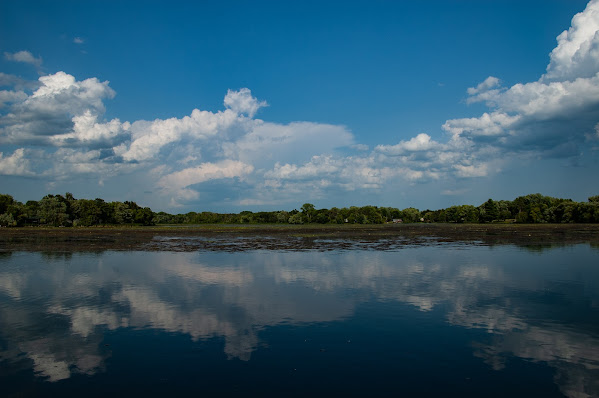This week's review is going back to shooting another of the first generation consumer DSLRs (like the Original Canon Rebel I reviewed earlier) the Nikon D70s.
In 2005 the D70s was among the last to have a first run 6mp sensor alongside the D50 and competing against the Minolta 5D/7D two to three years later then the Canon Digital Rebel, Nikon D100 and FujiFilm S2 Pro.
The Sony a100 and Nikon D40 would come out a year later in 2006 and still have the 6mp sensor, but were well outdated by that point. Sony was just entering the DSLR market after having acquired Minolta and its "A" lens mount and the D40 was marketed as an affordable low-end model to compete with the Canon Rebel series; so Nikon was less worried about using the older sensor in it.
The D70s was a slight upgrade to the original D70 that added an electronic/"Global" shutter and really not much else. It didn't address the QA problems the original D70 had, and still have a very low average shutter death of 35-40k actuations. Mine is still going at about 50k as there are of course exceptions to the average shutter life of a particular camera sensor.
The D200 that would launch the same year would make the D70s obsolete, falling into a mid-range APS-C niche that used an older sensor for only a year until the Nikon D80 update was released in 2006. It was therefore a transition camera model between the D70 and D80 that felt more like just a second run of D70 with very few improvements.
That said, the Nikon D70s is still is an interesting camera to shoot and it certainly has its charm. Let's move onto the product photos and review:
As mentioned before, the camera was released in 2005 mere months before Nikon introduced the next generation of APS-C CCD sensors in the D200. It has an APS-C sized 6.1 mp CCD sensor used previously by the D100, D70, concurrently with the D50 and later in the D40.
The first gen Nikon APS-C sensor is pretty solid, and offers a unique color tone and contrast consistent to what you would expect from a CCD based sensor. Like many other digital cameras under 6mp the images are great for posting at this size "as is" on the web, but there is very little wiggle room for cropping. It's a great sensor to have for doing a challenge and even shooting in RAW the file size is absolutely tiny as I could get 1.2k images on an 8gb card. So in essence it becomes like having all the benefits of the RAW format with the file size of a JPEG from most of my other cameras.
Like most DSLRs (minus the Canon Rebel) the startup and shutdown times are nearly instantaneous, and the camera will enter a sleep mode when not in use. This gives it a huge leg up over pocket cameras and bridge cameras of the time which had both startup/shutdown and shutter lag; none of which the D70s has. It also has a faster write speed to the card so shooting in RAW doesn't have a major impact on write lag to the card that I could notice.
The biggest limitation to the camera is that it only has 5 AF points, so you are best just leaving the focus point in the center and running with it. It also is limited to 3fps in burst mode making it not the best choice for fast action shots; a feature that wasn't tested during my review. For something like Street Photography however it is more then fast enough to keep up.
Aside from this, the only issue I ran into was that some newer lenses such as my Tamron 18-400 will not AF properly with this camera (whereas the Nikon D80 and even D200 don't have this issue). It will just hunt forever on newer 3rd party lenses and never get a focus lock; a drawback which cut it out from being used much on the last day of the challenge as I was planning on using that lens with it.
The addition of the top LCD over the Canon Rebel series is a nice touch, and this along with the lack of startup lag would make me choose this over the OG Canon Rebel if I want to shoot a classic 6mp DSLR from my collection. Ergonomically it feels nice though the button layout is a little awkward at times.
Overall the Nikon D70s would be a good camera for someone wanting to go back to the very basics of Digital Photography. Like the Canon Rebel, Nikon D200, Sony a290 and Rebel XTi that I reviewed earlier there is no video mode and no Liveview; so you have to use the OVF to frame and compose the shot then can review it on the camera's playback later.
It's a fun camera to take out and shoot on occasion, but given its low burst speed, touchy AutoFocus/ lens compatibility issues along with the fact that my D70s is above the "Average Shutter Failure" threshold makes this not a camera I would rely on for anything more serious or as a daily shooter.
With the review done, enjoy some of the photos I managed to take with this camera last week:







No comments:
Post a Comment